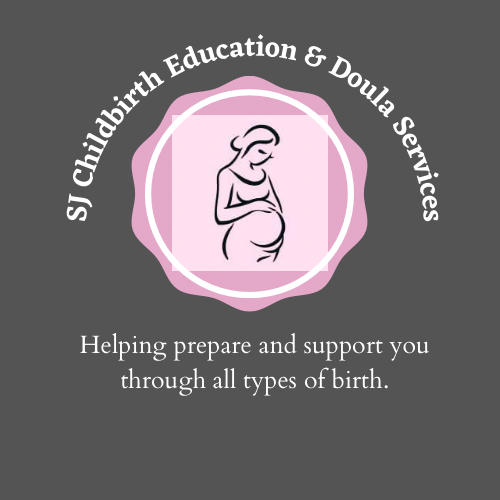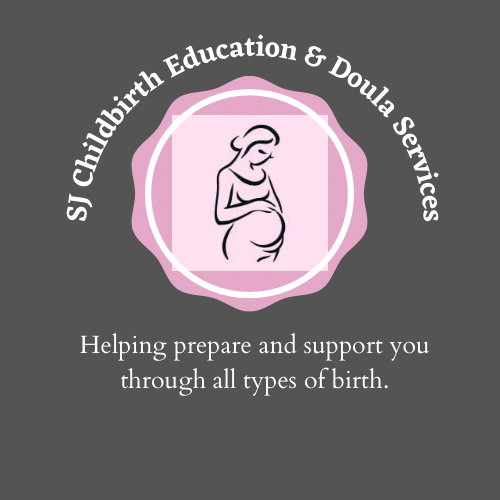Postpartum: Surprising Realties of the Postpartum Stage
Just like labor and birth are different for each person, so is postpartum. Postpartum isn’t thought about nearly as much as labor and birth, so naturally there are a lot of expectations that don't match reality which can hurt a new family and especially the young or inexperienced parent. In this article we’ll talk about some of the common postpartum expectations and realities and their impacts on new parents.
Most new parents (especially the mother) probably think most about their physical recovery after birth. They may think about how their body looks and how sexual intimacy might be, instead of how they might feel and how much their body may need to rest and heal. Neither way is bad but the reality as a new parent and especially the one who gave birth is that your body has just done a lot of work that you can’t see. It then does the heavy work of healing for several weeks. Expecting to be able to continue as you were before your baby - exercising, housekeeping, working, etc. - is unrealistic. The first 4-6 weeks following birth is when things are still physically healing. Especially the first two weeks. If you can stay off your feet more than you are on them then you should be able to keep yourself from overdoing it, physically. Getting adequate nutrition is also important. Not doing so can result in increased fatigue, low energy, and low mood. Having friends and neighbors or a paid meal service bring you meals at this time may be very helpful. Also, having help with cleaning and housekeeping, unless you have a partner at home with you, can help you in adjusting to the new realities of early postpartum.
Postpartum expectations for bonding are usually that it just happens magically. The baby is here and you love them! They’re beautiful and everything is wonderful! The reality is, even if your birth went exactly how you expected and wanted, infants can have issues sleeping, feeding, and burping. Infants need you for everything, which means one or both parents may end up being very sleep deprived and overwhelmed by the amount of care that their baby actually requires. This as well as the fluctuating hormones of postpartum can really contribute to how the new parents’ emotional adjustments go.
The postpartum emotional adjustment is sometimes discussed at prenatal visits, in term of the signs of baby blues and postpartum depression, but for the most part new parents can be in the dark about how the emotions of the postpartum period may feel. They might expect some sadness or mood issues but assume surely it won’t be that bad, “I’ll have the baby and it will be worth it,” or “I have my partner to help me.” Which may be true but in reality your partner may be new to this, too. Those who are close to new parents and supposed to be their support system cannot read their thoughts. As a parent you may feel sad or anxious or suicidal, but unless we tell someone they don’t know. They can’t be expected to know. Which means if you as a new parent have these thoughts it’s important that you tell someone. It’s a good idea to practice being emotionally honest with someone before birth to make it easier to do so after birth. It can be a partner, family member, friend, or doula. Once that honesty is established they can then help the new parents be aware of when things are beyond baby blues and may need some extra help, like from a provider or other professional. When new parents have these feelings and need extra help I like to remind them, that they are a good parent that is doing what they can to be the best they can for their child.
No one expects feeding their newborn to be hard, but if there are delivery issues, or a baby has lip or tongue tie issues, there are nipple issues, etc. feeding can be very challenging. Even those who prepare with classes and do “all the right things” can have milk supply issues or babies can have food sensitivities to milk or formula that create issues with growth or gut. The realities of feeding issues can again contribute to a harder emotional adjustment and overwhelmed new parents. If new parents are having trouble with feeding there are definitely resources they can reach out to. Usually a good place to start is the local WIC/Health Department. They usually have lactation counselors that can help reassure parents and make suggestions when needed.
Most new parents don’t expect to need a lot of external support or they may expect to rely on family or close friends with little to no experience to support them in the postpartum period. In reality as mentioned above external support can be crucial in helping you be successful in this transition. The more training and experience that support has the more likely they are to be able to help you succeed in a successful postpartum transition.
Reach out and tell us what surprised you as a new parent. Or if you’re interested in getting help with postpartum planning, we would love to hear from you!

